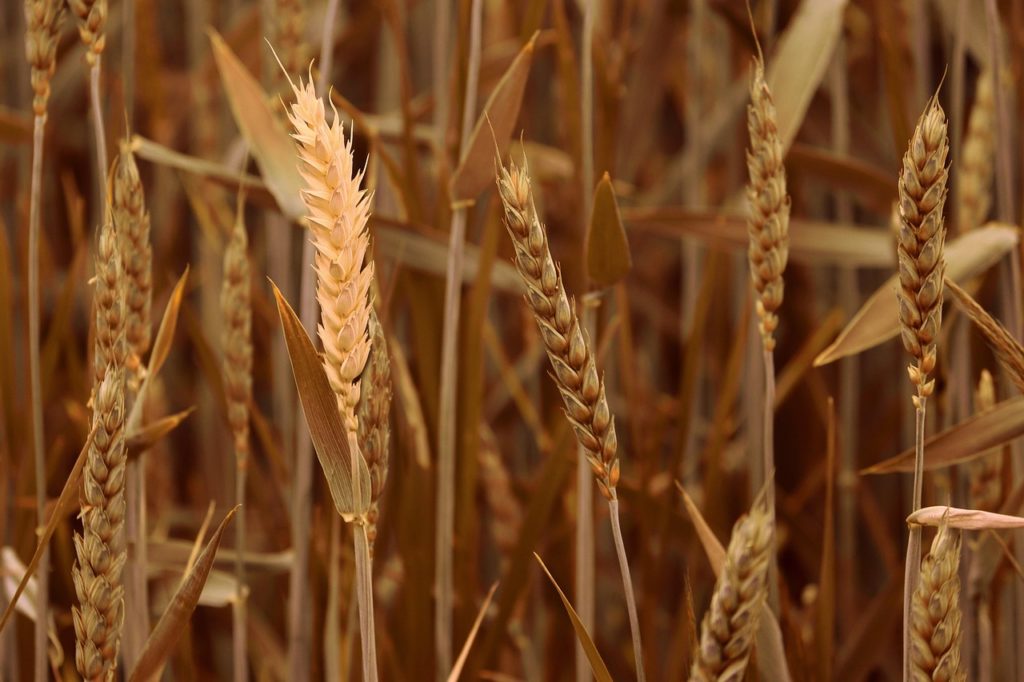Originally written for hobby blog on 16 March 2018
When reading the “about the author” section, I was struck by how Nora Gould mentions very little of her writing. This is because I see my love more clearly from a distance was her debut collection, and she chooses instead to talk about her life as a rancher in east Alberta, volunteer in wildlife rehabilitation, and how she graduated the University of Guelph with a veterinary medicine degree. This, along with the back blurb set the tone for many of the reoccurring themes and motifs through this 110 page book. The prairie, life, death, love, cancer, and ranching are all intertwined throughout the collection, but this first impression of the collection does nothing to prepare you for the alternating lightness and heaviness of the book.
In preparing for this review, I’d be reading I see my love for a second time. While a majority of the poems do not exceed two pages, some poems felt a little harder to swallow because of some of the poems’ long stanzas, heavier subject matter, and its personal alienness to me. While I did grow up in a small town surrounded by corn fields, one of my first jobs working amongst them, that was in southwestern Ontario. Many references are to ranching life, medical diagnosis, and a landscape completely foreign to me. While the notes at the end of the book did help some, Gould does not hold the reader’s hand and throws you directly into the speaker‘s (and I assume her) world. I found I often needed to take breaks while reading this collection because I’d find my eyes wandering, just staring at the page instead of reading the content. I’d recommend that, unless you have personal experience with ranching, veterinary medicine, and cancer diagnosis, you take breaks from reading this book to get the most out of it.
In saying that, within the first two poems the Prairie (capitalized like a proper noun throughout the collection) is personified and characterized in her own right, becoming just as much a person as the many others mentioned by name throughout. Names like Charl, Matt, Matthew, Zoë, Georgie, and many others are name-dropped and the relationships between them and the speaker is not always made clear upon their first mention. To some, this might be irritating and annoying, and it certainly was frustrating at times, but it drove me on to discover more about these characters and there interpersonal relationships. Slowly, almost organically, I learned Charl was the speaker’s husband, that the speaker has four children and we are let in on this family’s life and workings on a ranch that creates dynamic characters and intimate settings.
As mentioned above, death is a common theme throughout the collection and the way it’s spoken of is rather bluntly, simply as a fact of life. “Cause of death is obvious: rib cage crushed” is a poem that exemplifies this. The death and disease of humans and animals is treated with the same simplicity. Often throughout the collection, livestock needs to be killed because of injury or disease and is portrayed as brutal and violent, but still necessary part of a rancher’s life, sometimes the children even assisting with the deaths or treatment of the animals.
Medical and agricultural jargon is used throughout and can often make the poems sound clinical. This is used to advantage in some poems, such as “Thank you for calling the Farm Income Program Information Line.” While I have no experience with this particular customer service line, the poem effectively recreates the frustration of being put on hold and facing bureaucracy when all you need is help or information. However, there is some instances of this terminology taking me out of the poem when it feels used just for using its sake rather than language anyone may understand.
There is a large variety of poetic structure laced throughout, some poems being less than half a page to two page prose poems. While I did enjoy uncovering more and more about the land and the family working it, I often found myself wondering if some of the poems were images for the image’s sake. However, that is perhaps because of my lack of knowledge of some of the reoccurring motifs. There are certainly moments of the profound laced throughout. One example comes in “Poplars were the shell, we the blood on the slough.” It tells the story of the speaker, Charl and Hazel (presumably, their dog) on the search for missing cows, only for many to turn up dead. The poem ends thusly: “All recorded in Charl’s breast/pocket notebook, not transferred/to the official book for all to read.” My mind had a fun time picking apart what that action may mean.
In reading I see my love more clearly from a distance by Nora Gould, I found 20 out of 72 poems really stood out to me. While that may not seem like many, what was the most captivating part was reading the book as a whole, and piecing together the poems that were little looking glasses into this Albertan family’s life. There is violence, brutality, and bluntness here, but also beauty and love as this family and the speaker deal with death, love, disease, the Prairie, and everything in between.
Some Quick Stats:
Author: Nora Gould
Published: 1 April 2012, Brick Books
Pages: 110
